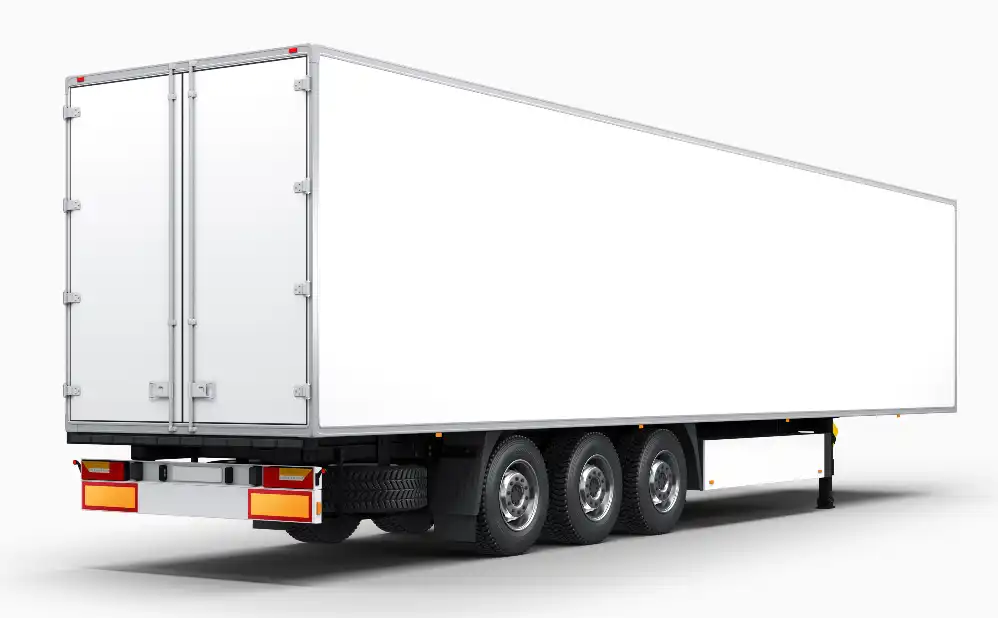In the world of transporting temperature-sensitive goods, refrigerated trailers, commonly known as reefers, play a vital role. When considering your options for refrigerated transport, purchasing a reefer trailer might seem like the obvious choice.
However, there’s another avenue that’s gaining traction for its hidden advantages: leasing. While the benefits of leasing a reefer trailer might not be immediately apparent, they can make a significant difference in the success and efficiency of your operations.
Quick Summary.
- Cost Efficiency and Budget Control
- Access to Latest Technology
- Flexibility to Scale
- Reduced Maintenance Burden
- Frees Up Working Capital
- Avoids Depreciation Worries
- Easier Equipment Replacement
- Less Administrative Burden
- Tax Benefits
In this blog, we’ll delve into the unseen benefits of refrigerated trailer leasing.
- Cost Efficiency and Budget Control:
When you lease a reefer trailer, you’re not faced with the hefty upfront costs associated with purchasing. Instead, you have a predictable monthly expense, which makes budgeting and financial planning more manageable.
This is especially valuable for businesses looking to avoid large capital expenditures or those with limited capital.
- Access to Latest Technology:
The world of refrigeration technology is constantly evolving, with advancements in efficiency, temperature control, and eco-friendliness. Leasing provides access to the latest models and technologies without being stuck with an outdated unit.
This is crucial for maintaining the quality and safety of your transported goods while staying aligned with industry standards.
- Flexibility to Scale:
Business needs can change rapidly, and your refrigeration requirements might fluctuate based on seasons, product demand, or new market opportunities.
Leasing offers the flexibility to adjust your fleet size and configuration as needed. You can quickly scale up during peak periods and downsize when demand subsides without the commitment of owning extra equipment.
- Reduced Maintenance Burden:
Maintenance and repairs are an integral part of owning any equipment. By leasing a reefer trailer, you often benefit from comprehensive maintenance packages.
Depending on your leasing contract, typically, the leasing company takes care of routine maintenance, repairs, and even emergency breakdowns.
This saves you time and eliminates the stress and unpredictability of unexpected repair costs.
- Frees Up Working Capital:
Leasing a reefer trailer allows you to allocate your working capital more effectively. Rather than tying up funds in purchasing equipment, you can invest in other business areas, such as marketing, expansion, or personnel, to drive growth.
- Avoids Depreciation Worries:
Equipment, including reefer trailers, tends to depreciate over time, impacting their resale value. When you lease, you don’t have to worry about the value of the asset diminishing. Instead, you’re focused on using the equipment effectively during the lease term.
- Easier Equipment Replacement:
You can easily upgrade to a newer model with improved features at the end of a lease term. This seamless transition allows you to stay competitive and maintain high-quality customer transport services.
- Less Administrative Burden:
The administrative tasks associated with ownership, such as insurance, registration, and compliance, can be time-consuming. Leasing simplifies this process, as the leasing company often manages many responsibilities.
- Tax Benefits:
Lease payments can often be deducted as operating expenses, potentially providing tax advantages. Consult a financial professional to understand how leasing might benefit your tax situation.
Bottom Line
In conclusion, while the immediate appeal of owning a reefer trailer might be strong, leasing brings an array of hidden advantages that can elevate your business operations.
From cost efficiency to technological advancements and flexibility, leasing offers a strategic solution to your refrigerated transport needs. When deciding, carefully weigh the unseen benefits of leasing and how they align with your business goals and long-term strategy.



